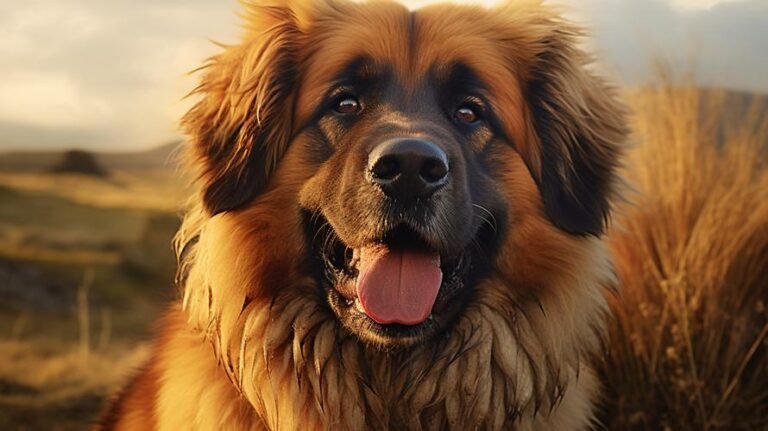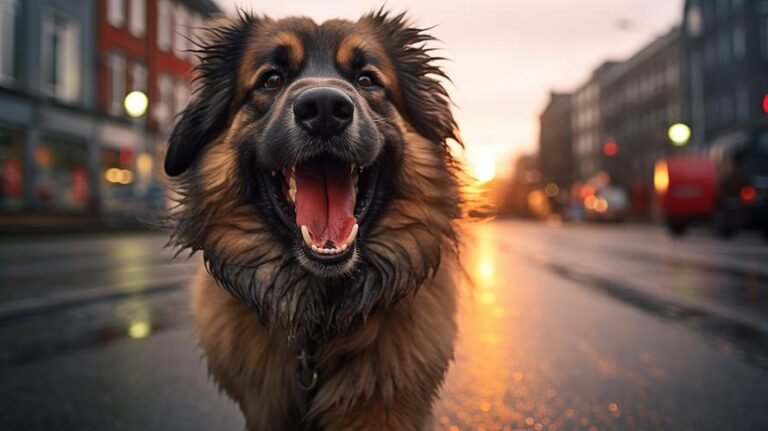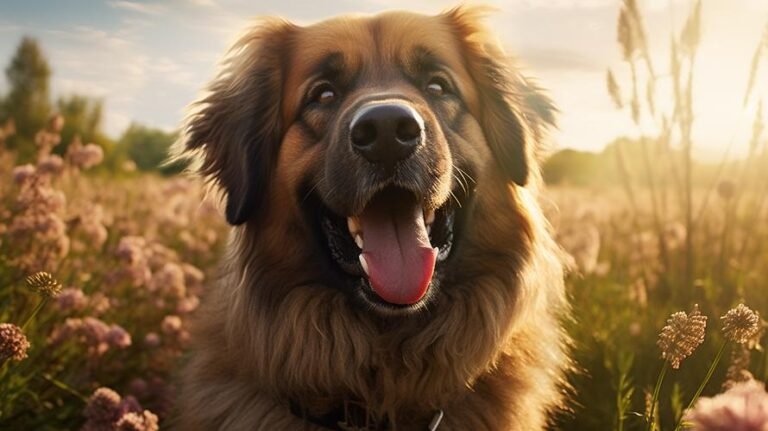If you ever find yourself looking at a Leonberger, you might think you’ve discovered a creature from a fairy tale or stumbled upon a gentle giant from a storybook kingdom. But no, this real-life behemoth, with its thick mane and imposing stance, is not a fabled beast, but a big, friendly dog breed with an intriguing history.
Originating from the city of Leonberg in Germany, these dogs were bred to resemble the lion in the town’s crest, and they did so eerily well. With males standing at up to 31 inches at the shoulder and weighing as much as 170 pounds, their presence is both majestic and cannot be ignored. Yet, despite their impressive size, Leonbergers have a reputation for being incredibly patient and affectionate with their families.
Now, when it comes to feeding such a colossal canine, one might assume that a Leonberger would gobble up any dog food you put in front of it. But hold your horses—or should we say, hold your lions—because these creatures have dietary needs as unique as their appearance.
The first thing to understand about Leonbergers is their growth rate. As puppies, they grow at an astonishing pace, which can put stress on their developing bones and joints. To ensure that they grow properly without putting too much strain on their bodies, they require a balanced diet that’s rich in high-quality nutrients but not too high in calories, which could cause them to grow too quickly.
Specifically for Leonbergers, it’s vital to focus on the appropriate levels of proteins and fats in their diet. A well-formulated large breed puppy food should have a slightly lower amount of protein than the food designed for smaller breeds. This is to regulate rapid bone growth and prevent skeletal issues such as hip dysplasia, which the breed is prone to. Also, proper amounts of Omega-3 and Omega-6 fatty acids contribute to a Leonberger’s skin health and aid in maintaining that luscious, shiny coat that is one of their standout features.
But it’s not just the content of the food that matters; the size and texture also play a crucial role. Due to their large muzzle and teeth, kibble made specifically for large breeds ensures that they actually chew their food, rather than inhaling it, which can reduce the risk of bloat—a serious and sometimes fatal condition that can occur if a dog eats too quickly.
As these gentle giants reach adulthood, their daily amount of dog food can seem surprising. While one might expect a dog of this size to eat a mountain of kibble daily, Leonbergers are actually known for having a relatively moderate appetite for their size. Generally, a mature Leonberger will require about 4 to 6 cups of high-quality dry dog food per day, split into two meals to keep their metabolism steady and their size in check.
Here’s where things get a bit more specialized: adult Leonbergers can do well on a diet that includes a good balance of proteins, fats, carbohydrates, and fiber. Proteins support their muscle maintenance, fats fuel their energy, carbs provide a quick source of calories, and fiber helps their digestive systems remain efficient. Essential vitamins and minerals, like vitamin E, phosphorus, and calcium, must be part of their diet in carefully calibrated amounts to ensure overall health and vitality.
Now, if you are parenting a senior Leonberger, their metabolism rate drops, meaning they’ll need fewer calories. Senior-specific dog food, which typically includes supplements like glucosamine for joint health, can help maintain their quality of life during their golden years.
One cannot forget, however, the importance of hydration, particularly for a dog this large. Fresh, clean water must be available at all times for a Leonberger, helping to aid digestion and regulate body temperature. A properly hydrated Leonberger is a happy one, indeed.
A word of caution: Leonbergers may sometimes seem as laid back as a lounging lion, but they still need regular exercise to keep them fit and prevent issues like obesity. Their meals should be tailored to their activity level, which means that a Leonberger who hikes with you will need more sustenance than one who prefers to sprawl on the living room floor.
All of this dietary planning must be complemented with regular health check-ups. A veterinarian can provide guidance tailored to the individual Leonberger’s needs, helping discern any allergies, sensitivities, or specific health conditions that may require dietary adjustments.
In conclusion, Leonbergers might be giants among dogs, but they should be treated with the same thoughtfulness as any other treasured pet. This means giving them a diet that’s not just any old dog food, but one properly researched and formulated for their noble size, splendid coat, and gentle heart. A Leonberger’s diet may require a touch more attention to detail than your average pup’s, but for those lucky enough to walk alongside these knights of the canine realm, it’s a small and rewarding price to pay. After all, what is a king or queen without their faithful lionhearted companion, healthy and robust beside them?



